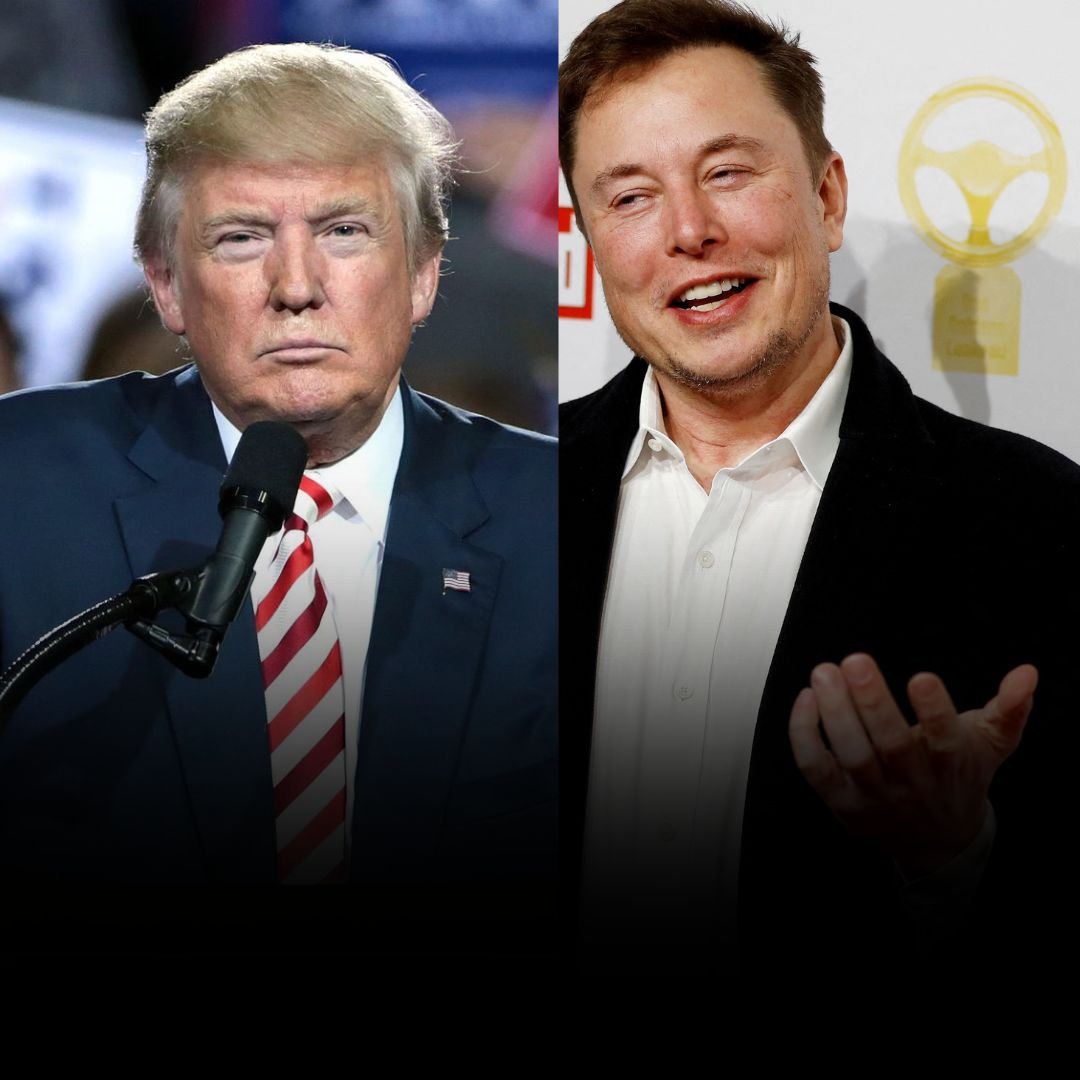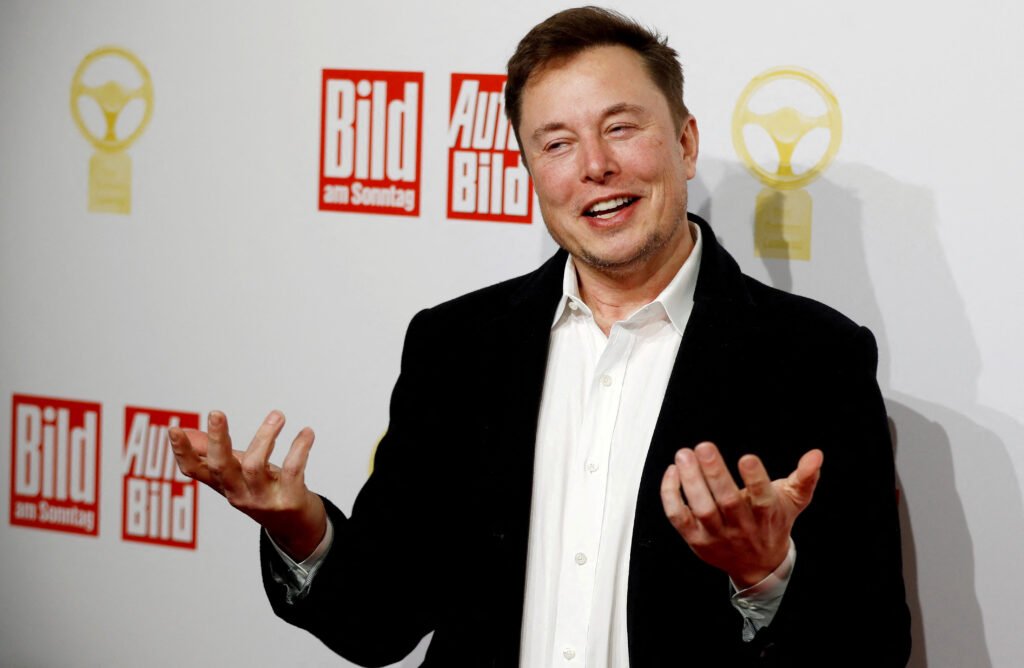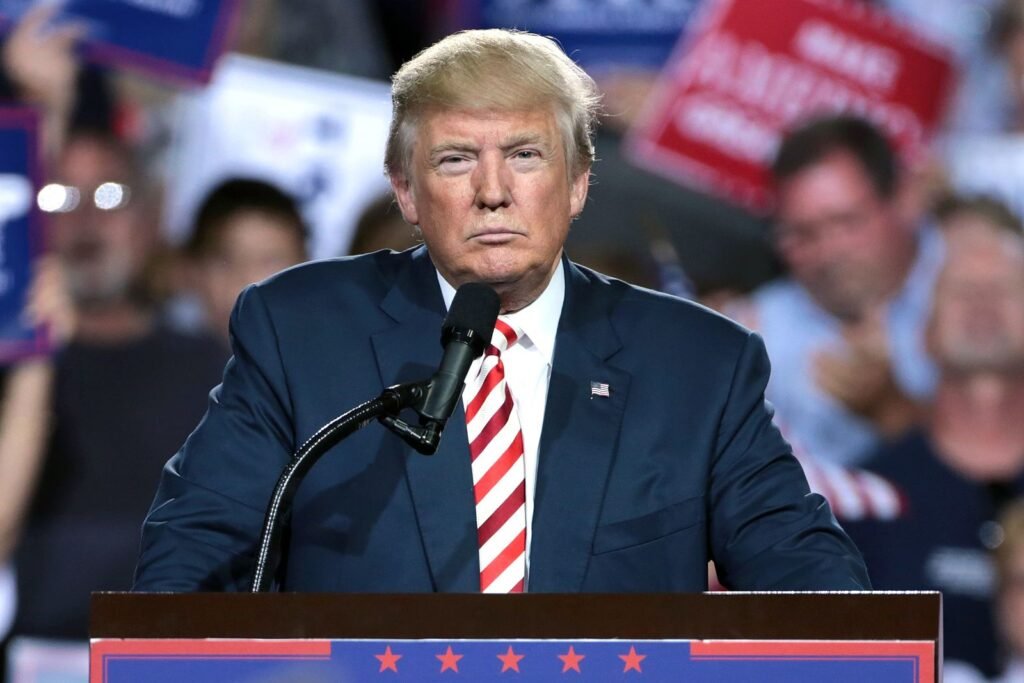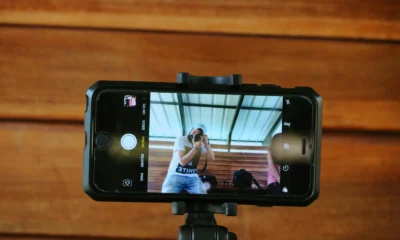Business
Sightful Launches Computer With No Screen
Sightful has introduced the Spacetop G1, a groundbreaking laptop designed for the spatial computing era. This innovative device combines the familiarity of a traditional laptop with the advanced capabilities of augmented reality (AR) to create a portable, private, and highly productive workspace.
Key Features and Specifications
- Virtual Workspace: The Spacetop G1 replaces the conventional 13-inch LCD screen with a 100-inch virtual workspace, providing users with ample space to enhance productivity and creativity anywhere.
- AR Glasses: The device includes lightweight, stylish AR glasses that are designed for long-term wear. These glasses feature automatic dimming in bright environments to ensure clear text legibility and focus.
- Performance: Equipped with a new Qualcomm Snapdragon QCS8550 chipset, the Spacetop G1 offers a 70% performance boost over its predecessor. It also includes a neural processing unit for machine learning tasks and boasts an 8-hour battery life.
- Design: The Spacetop G1 is slimmer and more portable than previous models, with a sleek design that fits easily into a standard laptop sleeve. The AR glasses can be stored in a dedicated slot within the laptop’s cover.
- Operating System: The proprietary SpaceOS has been refined to offer smoother interface interactions, improved cursor tracking, and gesture control. The device also features a Travel mode to maintain virtual screen positions during movement.
- AI Integration: Built for spatial AI, the Spacetop G1 leverages onboard AI functionality and physical context awareness to enhance user experience in ways traditional laptops cannot.
User Experience
Early users have praised the Spacetop G1 for its ability to provide a private and expansive workspace, making it ideal for remote work and productivity on the go. The AR glasses allow users to interact with multiple virtual screens, similar to setups used by Wall Street traders, without the need for multiple physical monitors. The device’s portability and the ability to use it in various environments, including outdoor settings, have also been highlighted as significant advantages.
Market Position and Availability
The Spacetop G1 is positioned as a premium product in the laptop market, with a price tag of $1,900. It is available for preorder with a $100 reservation fee and is expected to ship in October 2024. Sightful, backed by venture capital and led by ex-Magic Leap executives, aims to challenge the status quo of mobile computing with this innovative device.
Conclusion
The Spacetop G1 by Sightful represents a significant leap in the integration of AR and traditional computing. With its expansive virtual workspace, enhanced performance, and user-friendly design, it is poised to redefine productivity for the modern, mobile workforce. Whether it will achieve mainstream success remains to be seen, but it undoubtedly sets a new standard for what a laptop can be in the spatial computing era.
Stay Connected
Business
Mexican Protests: Gentrification, U.S. Migration, and Rising Tensions

Protests Erupt Over Housing and Migration in Mexico City
Mexico City has become the epicenter of growing unrest as hundreds of residents took to the streets on July 4, 2025, protesting against soaring rents, gentrification, and the increasing presence of U.S. migrants. What began as a peaceful demonstration quickly escalated, with incidents of vandalism and confrontations highlighting the depth of local frustration.

Key Drivers of the Unrest
- Gentrification and Housing Crisis:
Rents in popular neighborhoods like Condesa and Roma have surged by nearly 50% over the past five years, pricing out many long-term residents. Young people and families are particularly affected, with some forced to leave homes they have occupied for decades. - Influx of U.S. Migrants and Digital Nomads:
The arrival of affluent foreigners—especially Americans working remotely—has intensified gentrification. Many U.S. citizens take advantage of Mexico’s 180-day visa-free stay, cycling in and out to maintain residency. This has led to resentment among locals who feel displaced and unable to compete with foreign purchasing power.
- Economic Displacement:
Protesters argue that government policies favor those with higher incomes, resulting in forced or illegal evictions. Slogans like “Housing is a right, not a commodity” and “Mexico for Mexicans” were prominent during the marches. - Demands for Regulation:
Demonstrators called for stricter migration controls and for foreign residents to contribute more to the local economy, including paying fair taxes and respecting local culture.

Escalation and Official Response
- Vandalism and Confrontations:
While the protest started peacefully, a subset of demonstrators vandalized businesses—particularly those catering to foreigners—and harassed tourists. Chants of “gringo go home” and “pay taxes, learn Spanish, respect my culture” echoed through the streets as windows were smashed and property damaged. - Government Reaction:
City officials condemned the violence and emphasized Mexico City’s tradition of openness and migration. At least 15 businesses and public facilities reported damage. Authorities called for dialogue and unity, while also acknowledging the real pressures of rising rents and displacement.
Broader Context and Global Parallels
- International Pattern:
The protests in Mexico City mirror movements in cities like Barcelona and Madrid, where locals have also rallied against mass tourism and the transformation of neighborhoods by short-term rentals and foreign investment.

- Political Response:
President Claudia Sheinbaum and other leaders have addressed the unrest, rejecting xenophobia but recognizing the legitimate concerns about housing affordability and community displacement.
Summary Table
| Issue | Protester Concerns | Notable Incidents |
|---|---|---|
| Gentrification | Soaring rents, loss of affordable housing | Vandalism in Condesa, Roma |
| U.S. Migration | Displacement by digital nomads, lack of regulation | Harassment of tourists |
| Economic Displacement | Forced evictions, government favoritism | Slogans: “Housing is a right” |
| Official Response | Calls for dialogue, condemnation of violence | 15+ businesses damaged |
Conclusion
The recent protests in Mexico City reflect mounting anger over gentrification, housing insecurity, and the impact of foreign migration on local communities. As tensions rise, calls for policy reform and greater protections for residents are intensifying. City leaders face mounting pressure to balance openness with protecting the rights and livelihoods of long-term residents, signaling that the debate over Mexico’s urban future is far from over.
Business
Pros and Cons of the Big Beautiful Bill

The “Big Beautiful Bill” (officially the One Big Beautiful Bill Act) is a sweeping tax and spending package passed in July 2025. It makes permanent many Trump-era tax cuts, introduces new tax breaks for working Americans, and enacts deep cuts to federal safety-net programs. The bill also increases spending on border security and defense, while rolling back clean energy incentives and tightening requirements for social programs.

Pros
1. Tax Relief for Middle and Working-Class Families
- Makes the 2017 Trump tax cuts permanent, preventing a scheduled tax hike for many Americans.
- Introduces new tax breaks: no federal income tax on tips and overtime pay (for incomes under $150,000, with limits).
- Doubles the Child Tax Credit to $2,500 per child through 2028.
- Temporarily raises the SALT (state and local tax) deduction cap to $40,000.
- Creates “Trump Accounts”: tax-exempt savings accounts for newborns.
2. Support for Small Businesses and Economic Growth
- Makes the small business deduction permanent, supporting Main Street businesses.
- Expands expensing for investment in short-lived assets and domestic R&D, which is considered pro-growth.
3. Increased Spending on Security and Infrastructure
- Allocates $175 billion for border security and $160 billion for defense, the highest peacetime military budget in U.S. history.
- Provides $12.5 billion for air traffic control modernization.
4. Simplification and Fairness in the Tax Code
- Expands the Earned Income Tax Credit (EITC) and raises marginal rates on individuals earning over $400,000.
- Closes various deductions and loopholes, especially those benefiting private equity and multinational corporations.

Cons
1. Deep Cuts to Social Safety Net Programs
- Cuts Medicaid by approximately $930 billion and imposes new work requirements, which could leave millions without health insurance.
- Tightens eligibility and work requirements for SNAP (food assistance), potentially removing benefits from many low-income families.
- Rolls back student loan forgiveness and repeals Biden-era subsidies.
2. Increases the Federal Deficit
- The bill is projected to add $3.3–4 trillion to the federal deficit over 10 years.
- Critics argue that the combination of tax cuts and increased spending is fiscally irresponsible.
3. Benefits Skewed Toward the Wealthy
- The largest income gains go to affluent Americans, with top earners seeing significant after-tax increases.
- Critics describe the bill as the largest upward transfer of wealth in recent U.S. history.
4. Rollback of Clean Energy and Climate Incentives
- Eliminates tax credits for electric vehicles and solar energy by the end of 2025.
- Imposes stricter requirements for renewable energy developers, which could lead to job losses and higher electricity costs.

5. Potential Harm to Healthcare and Rural Hospitals
- Reduces funding for hospitals serving Medicaid recipients, increasing uncompensated care costs and threatening rural healthcare access.
- Tightens verification for federal premium subsidies under the Affordable Care Act, risking coverage for some middle-income Americans.
6. Public and Political Backlash
- The bill is unpopular in public polls and is seen as a political risk for its supporters.
- Critics warn it will widen the gap between rich and poor and reverse progress on alternative energy and healthcare.
Summary Table
| Pros | Cons |
|---|---|
| Permanent middle-class tax cuts | Deep Medicaid and SNAP cuts |
| No tax on tips/overtime for most workers | Millions may lose health insurance |
| Doubled Child Tax Credit | Adds $3.3–4T to deficit |
| Small business support | Benefits skewed to wealthy |
| Increased border/defense spending | Clean energy incentives eliminated |
| Simplifies some tax provisions | Threatens rural hospitals |
| Public backlash, political risk |
In summary:
The Big Beautiful Bill delivers significant tax relief and new benefits for many working and middle-class Americans, but it does so at the cost of deep cuts to social programs, a higher federal deficit, and reduced support for clean energy and healthcare. The bill is highly polarizing, with supporters touting its pro-growth and pro-family provisions, while critics warn of increased inequality and harm to vulnerable populations.
Business
Trump Threatens to ‘Take a Look’ at Deporting Elon Musk Amid Explosive Feud

The escalating conflict between President Donald Trump and Elon Musk reached a new peak this week, as Trump publicly suggested he would consider deporting the billionaire entrepreneur in response to Musk’s fierce criticism of the president’s signature tax and spending bill.

“I don’t know, we’ll have to take a look,” Trump told reporters on Tuesday when asked directly if he would deport Musk, who was born in South Africa but has been a U.S. citizen since 2002.
This threat followed a late-night post on Trump’s Truth Social platform, where he accused Musk of being the largest recipient of government subsidies in U.S. history. Trump claimed that without these supports, Musk “would likely have to shut down operations and return to South Africa,” and that ending such subsidies would mean “no more rocket launches, satellites, or electric vehicle production, and our nation would save a FORTUNE”.
Trump also invoked the Department of Government Efficiency (DOGE)—a federal agency Musk previously led—as a potential tool to scrutinize Musk’s companies. “We might have to put DOGE on Elon. You know what DOGE is? The DOGE is the monster that might have to go back and eat Elon,” Trump remarked, further intensifying the feud.

Background to the Feud
The rupture comes after Musk’s repeated attacks on Trump’s so-called “Big, Beautiful Bill,” a comprehensive spending and tax reform proposal that Musk has labeled a “disgusting abomination” and a threat to the nation’s fiscal health. Musk, once a Trump ally who contributed heavily to his election campaign and served as a government advisor, has called for the formation of a new political party, claiming the bill exposes the need for an alternative to the current two-party system.
In response, Trump’s allies have amplified questions about Musk’s citizenship and immigration history, with some suggesting an investigation into his naturalization process. However, legal experts note that deporting a naturalized U.S. citizen like Musk would be extremely difficult. The only path would involve denaturalization—a rare and complex legal process requiring proof of intentional fraud during the citizenship application, a standard typically reserved for the most egregious cases.
Political Fallout
Musk’s criticism has rattled some Republican lawmakers, who fear the feud could undermine their party’s unity ahead of the 2026 midterm elections. Meanwhile, Musk has doubled down on his opposition, warning he will support primary challengers against Republicans who back Trump’s bill.
Key Points:
- Trump has publicly threatened to “take a look” at deporting Elon Musk in retaliation for Musk’s opposition to his legislative agenda.
- Legal experts say actual deportation is highly unlikely due to the stringent requirements for denaturalizing a U.S. citizen.
- The feud marks a dramatic reversal from the pair’s earlier alliance, with both men now trading barbs over social media and in public statements.
As the dispute continues, it has become a flashpoint in the broader debate over government spending, corporate subsidies, and political loyalty at the highest levels of American power.

 Advice2 weeks ago
Advice2 weeks agoWhat SXSW 2025 Filmmakers Want Every New Director to Know

 Business5 days ago
Business5 days agoPros and Cons of the Big Beautiful Bill

 Film Industry3 weeks ago
Film Industry3 weeks agoFilming Yourself and Look Cinematic

 News1 week ago
News1 week agoFather Leaps Overboard to Save Daughter on Disney Dream Cruise

 Politics4 weeks ago
Politics4 weeks agoBolanle Newsroom Brief: Israel Strikes Iran’s Nuclear Sites — What It Means for the World

 Health1 week ago
Health1 week agoMcCullough Alleges Government Hid COVID Vaccine Side Effects

 Advice2 weeks ago
Advice2 weeks agoWhy 20% of Us Are Always Late

 Entertainment3 weeks ago
Entertainment3 weeks agoThe Hidden Reality Behind Victoria’s Secret







































